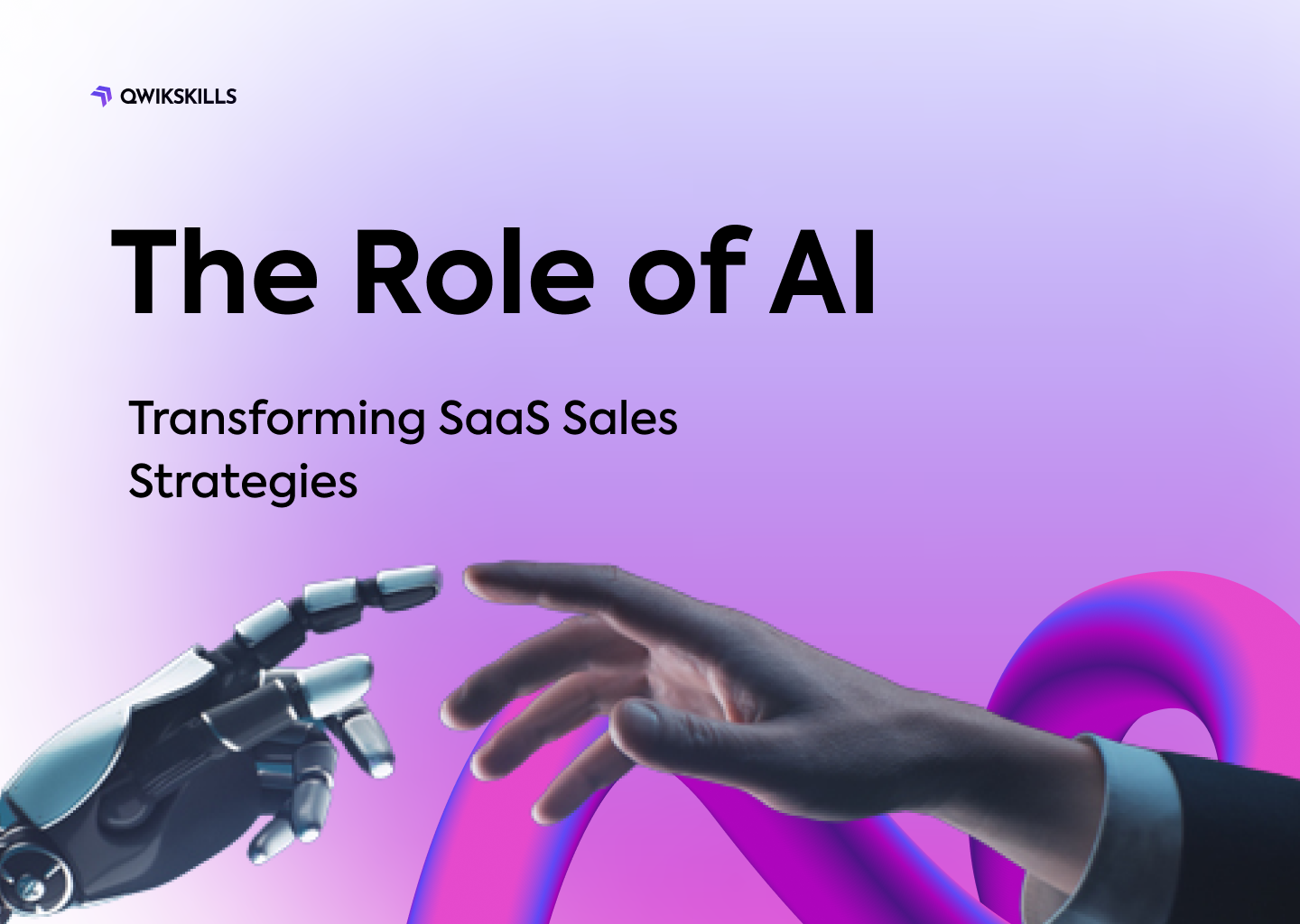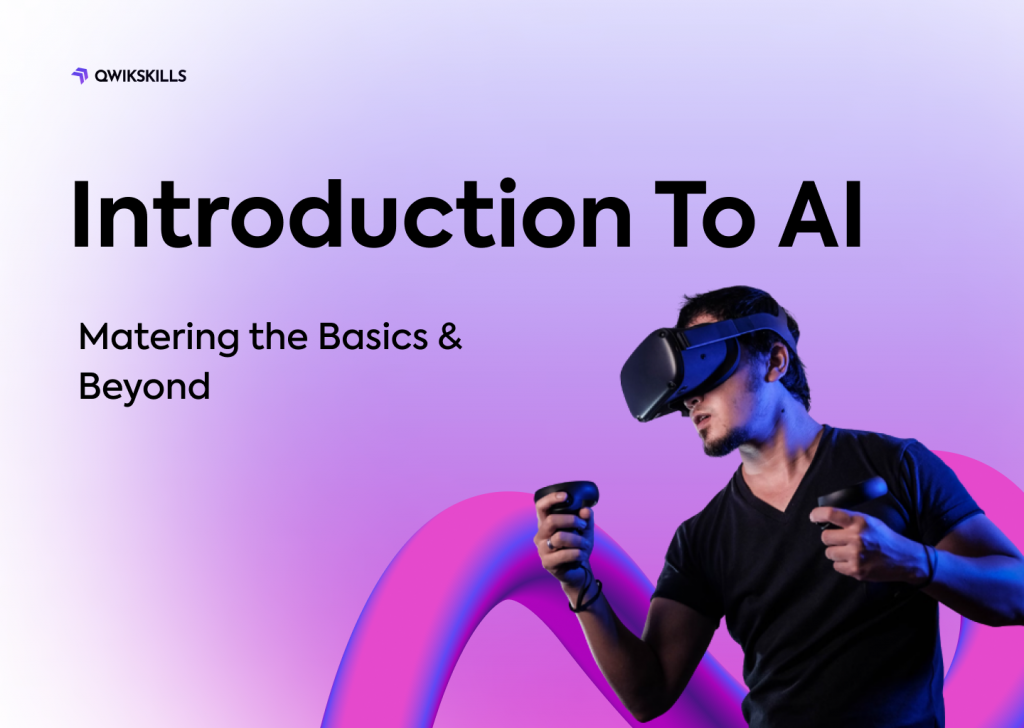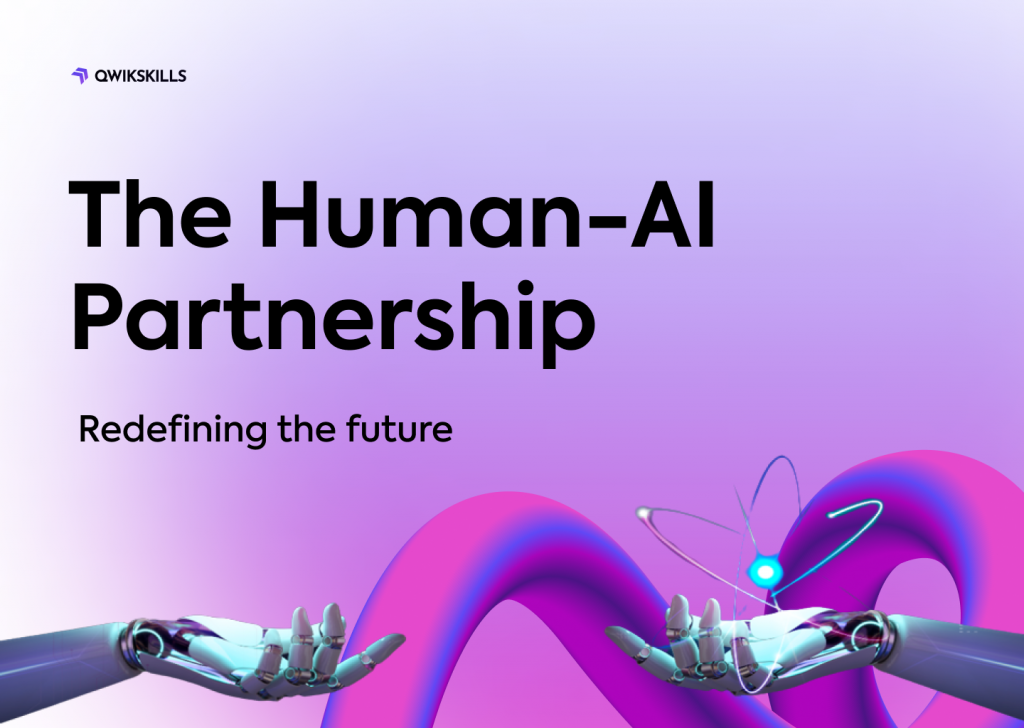The advent of technology has revolutionised every sphere of our lives, and the business world is no exception. The introduction of Artificial Intelligence and Software as a Service (SaaS) sales strategies has significantly transformed how businesses operate. Let’s take a closer look at what these concepts entail.
Definition of Artificial Intelligence (AI)
AI is a branch of computer science that simulates and mimics human intelligence in machines programmed to think like individuals and their ability to learn from experiences. It has various applications, from speech recognition to problem-solving, making it an integral part of technology-driven strategies.
SaaS Sales & Tech Impact
SaaS sales refer to selling subscription-based software to clients. Historically, businesses relied on personal selling. However, technology has introduced automation in the sales process, reducing human intervention and making it more efficient. Here’s how it works:
- Modern SaaS sales strategies involve automated emails and follow-ups.
- Customer data and analytics are harnessed for personalized engagement.
- Sales forecasting relies on sophisticated AI algorithms to predict future trends convincingly.
The Evolution of SaaS Sales Strategies
Traditional Sales Approaches in the SaaS Industry
In the past, SaaS companies relied heavily on high-touch sales models. Teams of dedicated salespersons would essentially be tasked with manually pushing customers through the sales funnel, from discovery to final purchase. This model worked reasonably well in a less saturated market but as the industry has grown, becoming more competitive, the mode of traditional sales has been challenged.
Challenges Faced by SaaS Sales Teams
With the high-touch model, sales teams face a number of challenges:
- It’s work-heavy, limiting salespeople’s time for key tasks like fostering customer relationships.
- It’s time-consuming as the manual processes involved can slow down the entire sales operations.
- It often lacks scalability, especially for businesses experiencing rapid growth.
The Need for Innovation and Transformation in Sales Processes
The competitive SaaS industry now demands innovative sales methods. Technology can boost and modernize these processes, making them more profitable. Key to this change is the adoption of Artificial Intelligence (AI) in sales strategies. Let’s explore how AI is making a big difference.
Understanding AI
AI, or Artificial Intelligence, is a rapidly expanding field of tech with enormous potential for transforming how we do business. But what exactly is AI and how does it work in the context of SaaS sales?
Definition and core capabilities of AI
In simple terms, AI is the simulation of human intelligence processes by machines, particularly computer systems. This includes learning (the acquisition of information and rules for using the information), reasoning (using the rules to reach approximate or definite conclusions) and self-correction. In sales, AI’s remarkable capabilities such as data analysis, predictive modelling, and lead scoring all lead to more efficient, targeted strategies.
Different types of AI technologies used in sales
- Machine Learning: Employs stats to help machines learn from past experiences and enhance future actions.
- Natural Language Processing (NLP): Enables machines to understand human language using advanced linguistic algorithms.
- Chatbots: AI-driven customer reps interact with clients instantly, resolving questions, and closing deals.
- AI-powered analytics offer rich insights into customer behaviour and future trends, aiding businesses in making data-driven decisions.
Each technology uniquely revolutionises SaaS sales, with AI setting new standards in efficiency through automated customer interactions and predictive analytics.
AI-driven Automation in SaaS Sales
The role of Artificial Intelligence (AI) in SaaS sales is dynamic and expanding. It’s enhancing efficiency, personalization, and revenue growth by automating various aspects of the sales process.
Streamlining lead generation with AI
AI is great at finding sales opportunities. It uses a method called predictive analysis to scan loads of information for possible leads. By spotting trends and guessing what might happen in the future, AI makes the process of getting leads easier and more accurate. Plus, it can look at multiple places at once like emails, social media, or customer reviews.
Customizing customer experiences with AI
AI is increasingly essential for customizing customer interactions with its advanced algorithms. They study vast data to discern customer habits and preferences for personalized engagement. By learning from past interactions, machine learning enhances future communication strategies.
Automating CRM with AI tools
AI has revolutionised CRM systems, quickly analyzing large data sets and uncovering trends that would typically take days manually. It also automates repetitive tasks like mailing, enabling the sales team to focus more on strategic initiatives.
Augmenting Sales Teams with AI
As sales organizations delve deeper into the digitalized era, they are realizing the immense potential of artificial intelligence to revolutionize their strategies.
AI-enabled Sales Assistants for Improved Productivity
Implementing AI-enabled sales assistants in SaaS companies can considerably increase productivity. Such assistants can scan digital content, analyze data, and provide relevant information to sales teams instantaneously. Here are some ways in which AI assistants can enhance productivity:
- Automating repetitive tasks frees up more time for strategizing.
- Providing real-time suggestions based on customer behavioural patterns.
- Conducting predictive analysis to identify high-quality leads.
AI Sales Predictions & Analysis
Accurate sales forecasting is crucial to devise effective SaaS sales strategies. AI can sift through massive stacks of data to forecast potential sales and revenue accurately. AI-powered analytical tools can also help to:
- Identify sales trends and patterns.
- Understand customer requirements and preferences.
- Predict potential risks and roadblocks in sales strategies.
Boosting Teamwork & Choices with AI
AI can play an invaluable role in facilitating collaboration within a sales team. AI-powered collaborative platforms can streamline workflows, maximize efficiency, and aid in effective decision-making. Some advantages of using such a platform include:
- Generating actionable insights based on collective team inputs.
- Facilitating seamless sharing of information.
- Enhancing transparency and improving communication, thus fostering a cohesive sales team.
AI and Customer Experience in SaaS Sales
The profound impact of Artificial Intelligence (AI) can be seen in numerous areas and the SaaS sales sector is not an exception. The primary advantage that AI brings into play is the capability to deliver top-notch customer experiences.
AI-driven chatbots for personalized customer support
The first remarkable benefit is efficient customer support given by AI-driven chatbots. They are invaluable assets, available round-the-clock to handle a multitude of customer queries in no time.
The key advantage is the efficient support provided by AI chatbots. Always ready, they swiftly handle numerous customer inquiries. Unbothered by the amount, they quickly respond, manage multiple queries at once, and remember past chats for a personalized touch.
AI for targeted recommendations
We have AI-powered recommendation systems that spot patterns within big data sets to suggest products or services. This enhances users’ experience by providing them with appropriate upsells and cross-sells. AI’s ability to analyze customers’ behaviour, interests, and preferences helps brands to drive higher sales.
Enhancing Customer Loyalty with AI
Lastly, AI aids in streamlining the customer onboarding process by automating tasks like data entry. By identifying catch-points in the customer’s journey, AI helps to predict and increase customer retention rates. This optimization turns into a win-win situation as it enhances the users’ experience while directly contributing to the companies’ revenue growth.
AI’s Effect on SaaS Sales Revenue Growth
Artificial Intelligence (AI) has become a cornerstone in driving revenue growth in the SaaS (Software as a Service) industry. It has enabled businesses to learn, analyze, and predict customer behaviour, fostering improved decision-making and strategy formulation.
Maximize Revenue with AI Pricing Strategies
AI has stepped up the game when it comes to pricing strategies. With the help of machine learning algorithms, companies can:
- Determine the optimal pricing strategy based on historical sales data
- Forecast demand and adjust prices accordingly
- Identify patterns and trends, allowing for strategic pricing decisions
Enhancing Client Value through AI
Leveraging AI algorithms allows businesses to enhance their customer relationships and boost their lifetime value. They can:
- Predict customer behaviour and future needs
- Customize products and services according to customer preferences
- Enhance customer support with AI-powered chatbots and automatic email responses
Challenges in Implementing AI in SaaS
While AI can greatly improve SaaS sales, it does come with some challenges. These include privacy concerns, difficulties with integration, and getting the team on board.
Data Privacy and Security Concerns
Harnessing AI in SaaS sales poses a significant challenge due to data privacy and security concerns. AI needs huge data to function, increasing security risks. It’s essential to securely store and process this data while respecting customer privacy laws to maintain trust and avoid legal issues.
Integrating AI Tools into Existing Sales Processes
One challenge is smoothly incorporating AI tools into current sales routines. Without careful management, AI can disrupt workflows. It’s essential that old systems can interact with AI tools. For success, companies may need to assess:
- Re-evaluating current workflows
- Upgrading software packages
- Gaining buy-in from all stakeholders
Upskilling Sales Teams for AI Adoption
In simpler terms, it’s a big task to get the sales team ready to use AI. If they don’t have the needed AI skills and don’t understand its benefits, they might resist the change. Thus, adopting AI in SaaS sales requires not only technological change but also organizational one, focusing on:
- Regular training sessions
- E-learning courses
- In-house expertise cultivation
- Led-by-example leadership
Future Trends and Possibilities of AI in SaaS Sales
Artificial intelligence is undoubtedly playing a promising role in shaping the future of SaaS sales. From predictive sales forecasting to identifying potential up-selling and cross-selling opportunities, AI is bound to influence the SaaS landscape substantially over the coming years. Here’s a closer look:
AI-powered sales forecasting
AI sales forecasting and demand planning tools are increasingly gaining traction in the SaaS sales realm. These tools harness the power of AI to analyze historical sales data and market trends, thereby generating sales forecasts that are accurate and reliable. With AI-driven insights, SaaS businesses can better predict customer demands and trends, ensuring inventory is always aligned with these predictions.
Using AI to identify upselling opportunities
AI isn’t just about predicting sales, it’s also a powerful tool for identifying cross-selling and upselling opportunities. By analyzing customer behaviour, preferences, and purchase history, AI can help SaaS businesses discern opportunities to offer additional value to their customers, thereby boosting revenue and customer satisfaction levels.
Potential impact of AI on SaaS
So, what does the growth of AI mean for SaaS sales professionals? While AI may take on some traditional sales tasks, it’s not all bad news. Sales pros will need to use AI to boost their strategies and customer interactions, not as a job threat. So, the future looks like a stronger partnership between AI and SaaS sales.
Final Thoughts
As we move forward, it’s evident that AI’s role in transforming SaaS sales will only become more pivotal. The technology holds a promising future, empowering sales teams with valuable insights and advanced data analysis capabilities for strategic decision-making.
Starting your SaaS sales adventure? Don’t worry, QwikSkills is here to help guide your career. Grab a hold of opportunities, keep up with trends, and dive confidently into the exciting world of SaaS sales. Your path to success begins right here.




